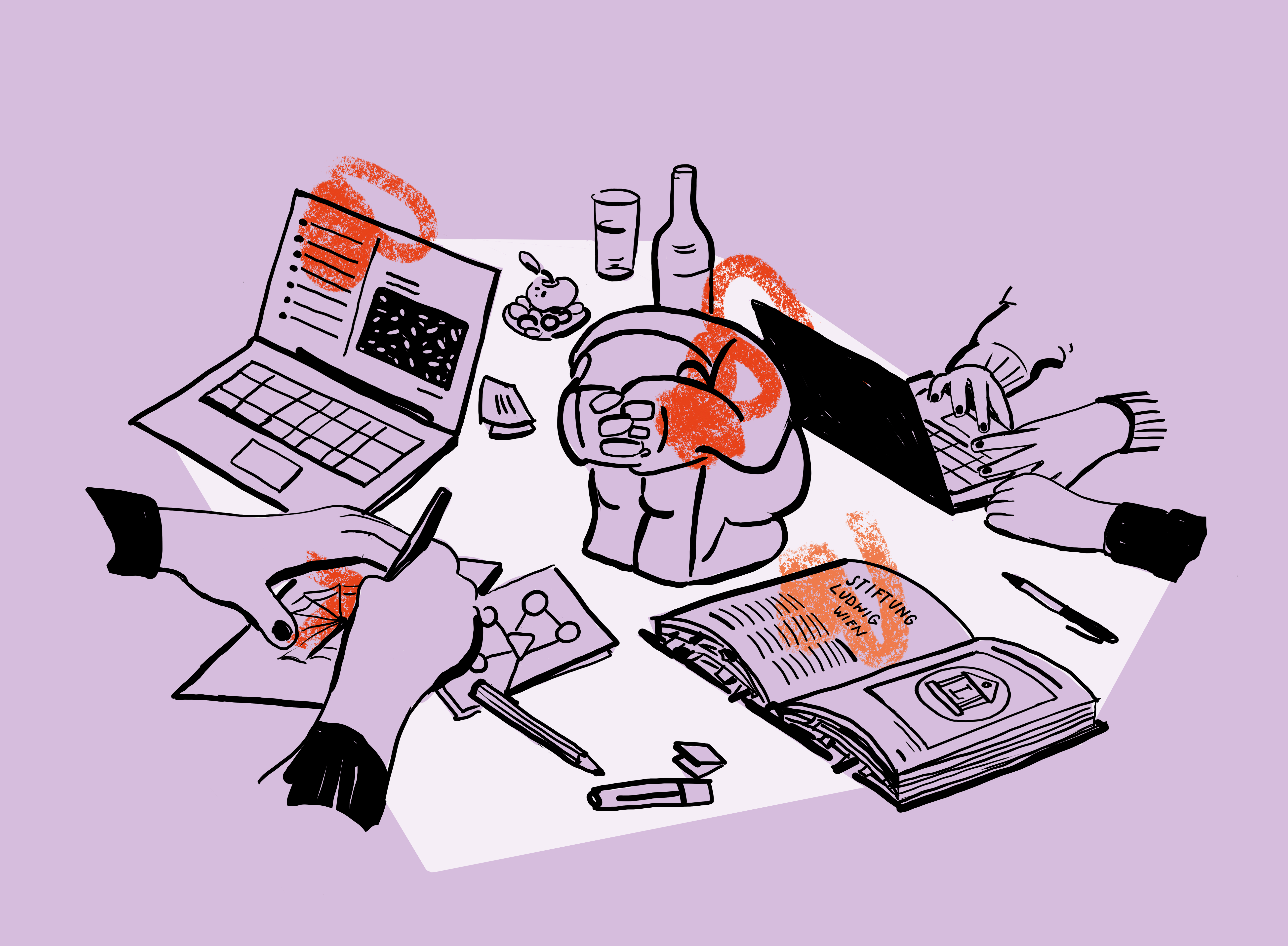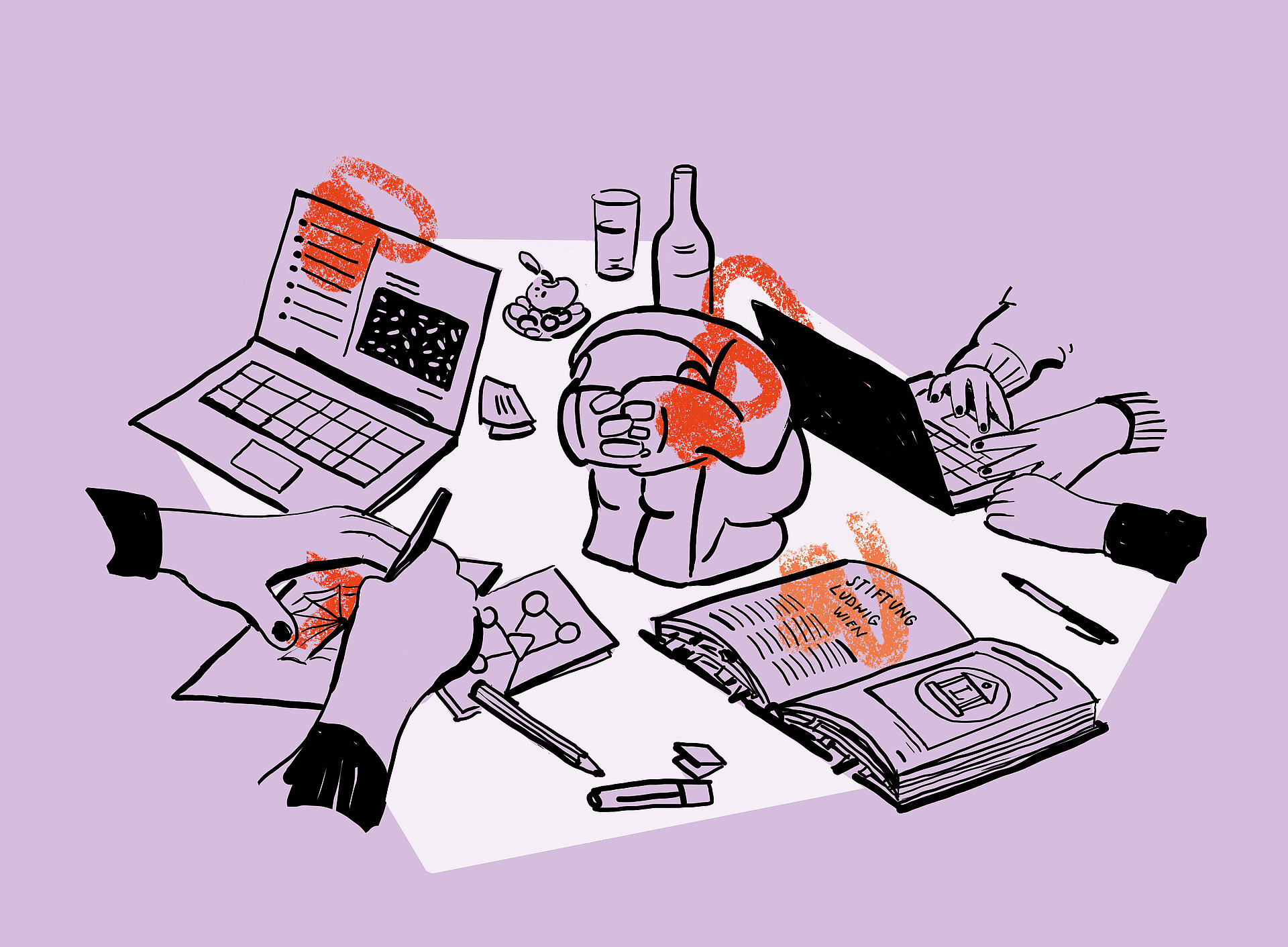
Monday, October 7, 2024, 9am to 6pm
Symposium Ludwig goes digital!
Citizen Humanities and Digital Collection Research
Symposium Ludwig goes digital!
Dive into the Future of Museums!
Our Symposium Ludwig Goes Digital! invites you to explore innovative methods of digital collection research and participatory museum practices.
What to expect:
- Exciting insights into modern museology and citizen humanities.
- Creative co-creation processes for collection visualization.
- Discussions on artificial intelligence and its role in the art world.
- Innovative crowdsourcing tools for collaborative research.
Join us for a diverse programme of presentations highlighting current trends and developments in digital museology. Interactive workshops and discussions will allow you to delve deeper into the topics and actively participate in shaping the future of museum work. In addition to gaining valuable insights into new technologies and creative approaches, you will have the opportunity to discover innovative projects and exchange ideas with other professionals.
Since 2023, mumok has focused on participatory collection research, setting new standards in the process. As part of the Ludwig Goes Digital! project, funded by the Peter and Irene Ludwig Foundation, we work closely with young participants from our creative coding courses. Together, we immerse ourselves in the world of art, collecting practices, and artists—all based on the principles of Citizen Humanities.
But that’s not all: in addition to exploring artworks and collection strategies, we also focus on basic museological research and digital collection documentation. The goal is not only to challenge existing structures but also to create new knowledge through active exchange with our young citizen scientists. This collaboration opens up new perspectives on works that would otherwise remain hidden from us.
One particularly exciting aspect is the use of artificial intelligence. Together, we explore how AI is impacting the art world while discussing ethical issues, technical backgrounds, and societal reactions to machine learning, neural networks, and chatbots. It's about more than just coding—it’s about understanding and reflecting on these technologies in a cultural context.
After this intensive collaboration, the data and ideas developed were visualized through a creative co-creation process and prepared as a digital service for our visitors. We also worked with semantics to develop an innovative crowdsourcing module tailored specifically to our courses and the needs of young participants. This allows them to develop their own research questions, create content independently, and network.
The results of this collaboration are directly integrated into mumok’s collection documentation, and the data generated is transformed into visualizations of the collection’s holdings.
Our symposium offers you the chance to experience these creative applications and digital artworks up close. We will share our key findings, present best practices, and invite you to join us in discussing new approaches to participatory collecting practices.
Program Overview:
- 9–9.30 am: Arrival & Check-in
- 9.30–9.45 am: Welcome by Karola Kraus, Director, mumok
- 9.45–10.20 am: What Does Digitalization Mean for Us as an Art Foundation? — Dr. Carla Cugini, Director, Peter and Irene Ludwig Foundation
- 10.20–10.35 am: Introduction to the Ludwig Goes Digital! Project — Marie-Therese Hochwartner, Head of Collection and Education, mumok
- 10.35–10.45 am: Presentation of Project Results — Claudia Freiberger, Curator of mumok’s Digital Collection
- 11–11.40 am: The Future of Collection Documentation — Andreas Schlüter, Olli Powroznik, Semantics
- 11.40 am–12.20 pm: Q&A and Discussion: Digital Transformation in the Cultural Sector — Opportunities and Challenges with Carla Cugini, Andreas Schlüter, Olli Powroznik, Anja Grebe (Professor of Cultural History and Museum Collection Studies, University of Applied Sciences Krems), and Marie-Therese Hochwartner
- 1–1.30 pm: Exclusive Guided Tour Through the Exhibition Mapping the 60s
- 1.30–2.25 pm: Visualization Workshop — Visualizing Networks from the Exhibition Mapping the 60s
- 2.40–3.20 pm: A Museum on the Move: Disruptions in Art, Culture, and Science — Holger Simon, Art Historian and Digital Entrepreneur
- 3.20–3.50 pm: AI—Humanities at an Advantage — Benedikt Hochwartner, Curator, Creative Learning, mumok
- 4–4.30 pm: Q&A and Discussion: Artificial Intelligence at the Intersection of Art and Education with Raphaël de Courville, Benedikt Hochwartner, Lena Arends, and Katarina Savora (in English)
- 4.30–5.10 pm: Open Source for All: Processing and the Future of Accessible Creativity — Raphaël de Courville, Community Lead, Processing Foundation (in English)
- 5.10–5.50 pm: Processing Programming Workshop on Nixe's Mate by Larry Poons
- From 6 pm: Networking with Kattus Sparkling Wine and Music
Most of the program will be in German.
When: Monday, 7 October 2024, 9am to 6pm
Where: mumok – Museum moderner Kunst Stiftung Ludwig Wien, Lounge
Participation is free of charge. Please register in advance!
If you have any questions, please contact kunstvermittlung@mumok.at
By participating, you grant us permission to publish image and sound recordings (photo, video and audio) made during the event.
Illustration: © Stefanie Hilgarth
Note
On September 20, 2024, the symposium BILDUNGSPARTNERSCHAFT NEU! will take place, which is aimed at everyone who is interested in educational work. We are rethinking education and museums with art, programming and creative learning!
With our polyphonic collection works and computer programming, we combine STEM subjects with art & culture and modern technologies. We also show how school subjects can be taught innovatively and explore the digital world as a positive creative space.
© mumok – museum moderner kunst stiftung ludwig wien

